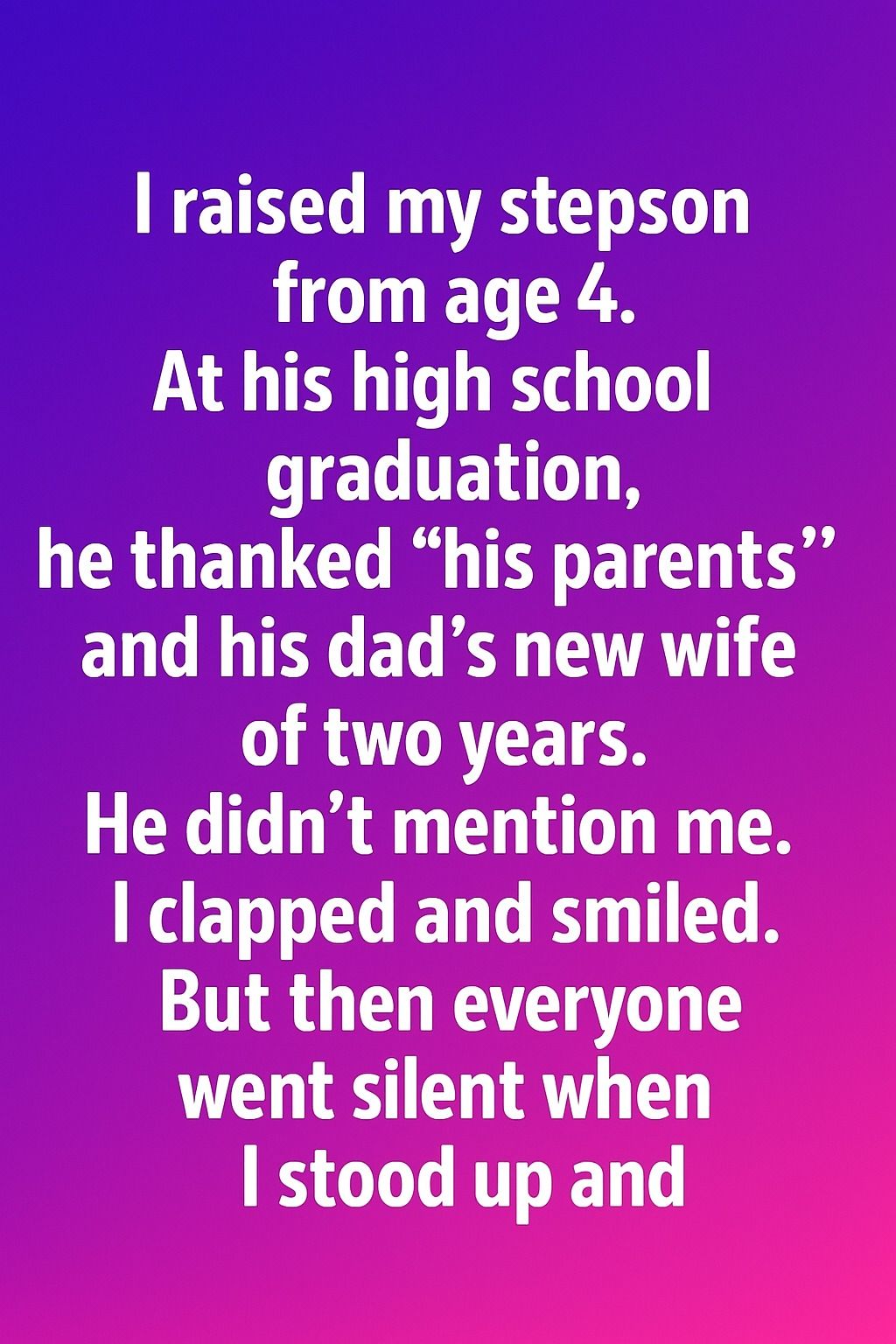I didn’t take the stage that evening to correct a slight, to claim recognition, or to insert myself into the narrative of his life in any public way. That was never my intention. I stood there instead to speak of him in the way the world deserved to see him—not as a collection of accolades, not as a figure defined by fleeting moments of visibility, but as a young man shaped by kindness, perseverance, and the countless quiet influences that had guided him along the winding path to that moment. I wanted to honor the invisible architecture of his life: the mentors who never sought credit, the small but persistent acts of patience and care, the everyday gestures that, cumulatively, had fortified his character. I did not mention myself even once. My voice, restrained and measured, pointed outward, highlighting not my own role but the vast network of love, encouragement, and guidance that had brought him to that stage, to that point of recognition. Every nod, every phrase, every subtle acknowledgment was meant as a quiet tribute to the unseen hands that lift a young person along their journey.
The audience, naturally, leaned in with an expectation that is all too familiar in such moments: they waited for confrontation, for a dramatic claim, for some sort of claim to authorship or ownership of his success. And yet, when nothing of the sort came—when instead the speech unfolded as a tapestry of gratitude and quiet celebration—they were confronted not with conflict, but with recognition of a deeper, more universal truth. Gratitude, expressed not for oneself but for the forces that support and nurture another human being, has a weight and power all its own. It subtly shifted the atmosphere of the room. It asked those listening to consider not just the young man before them, but the networks, visible and invisible, that shape the people we admire, the people we love, and the people who achieve.
Afterward, when he ran to me, breathless and tearful, with the tentative words of apology trembling on his lips, I understood that the real triumph had nothing to do with public acknowledgment or applause. This moment was far more profound. He had finally begun to see—truly see—the cumulative effect of years, of small, consistent actions that rarely, if ever, attracted attention. He recognized the countless rides given without complaint, the evenings spent at tables surrounded by homework, the conversations that guided but did not pressure, the unspoken love that simply stayed present. In that instant, the gap between action and recognition closed, not because of words spoken on stage, but because of a lifetime of quiet care that had now been perceived, felt, and internalized.
The applause that rippled through the room afterward, while it could easily have been mistaken as acknowledgment of my presence or my words, was in fact a reflection of something far deeper: a collective recognition of a principle we rarely speak aloud. Real love does not seek validation, does not demand acknowledgment, and does not require a spotlight to justify its existence. It persists quietly, patiently, unwaveringly, through ordinary days and unnoticed moments, waiting only for the heart to awaken and recognize it. It is steady, resilient, and enduring, shaping the lives it touches long before the world ever notices. That evening, in his eyes and in the silent understanding that passed between us, the truth of this principle became undeniable, a quiet celebration of all that had been done in love and without expectation.
And as we lingered in that embrace, the weight of unspoken gratitude settled into both of us. It was not the glory of a speech, nor the fleeting excitement of public attention, that mattered. It was the recognition of a lifelong pattern of care—an acknowledgment that what endures is not the spotlight, but the constancy of love, the devotion that does not waver, and the patience that does not ask for return. Every small act, every unnoticed kindness, had accumulated into a foundation strong enough to support him in his moment of triumph, and in recognizing that, he finally understood a truth that no ceremony, no stage, no applause could ever fully convey: love, when genuine, is an unshakable force, patiently waiting for hearts to catch up, ready to be recognized not with fanfare, but with quiet understanding.
